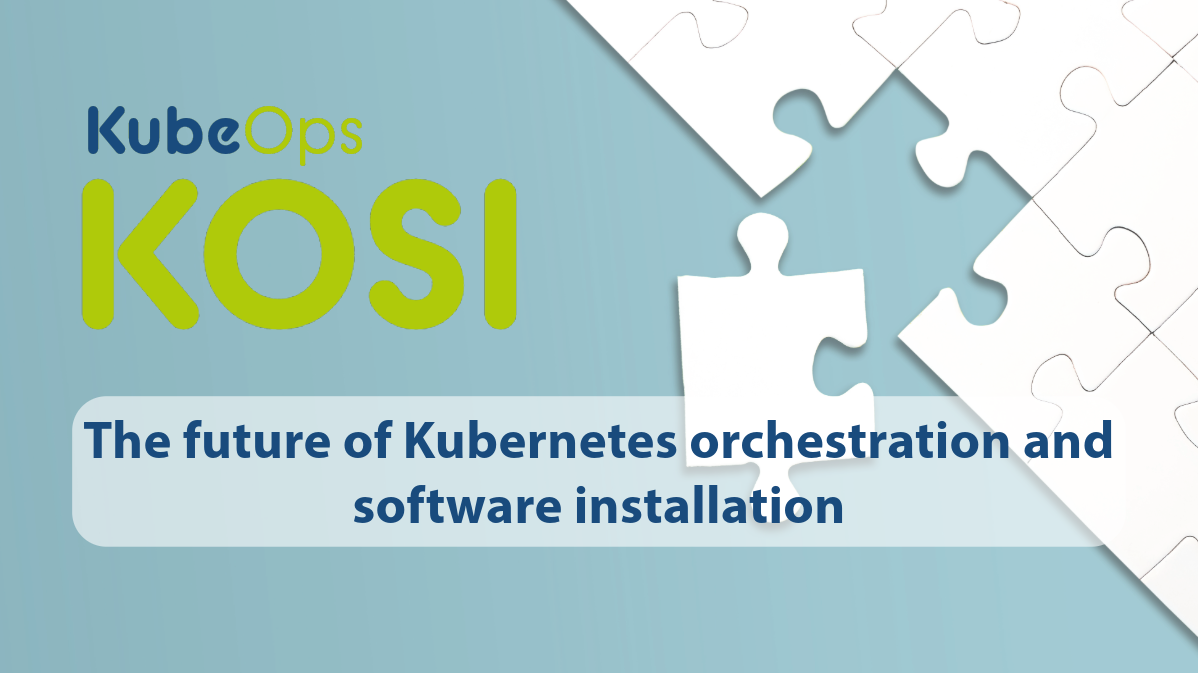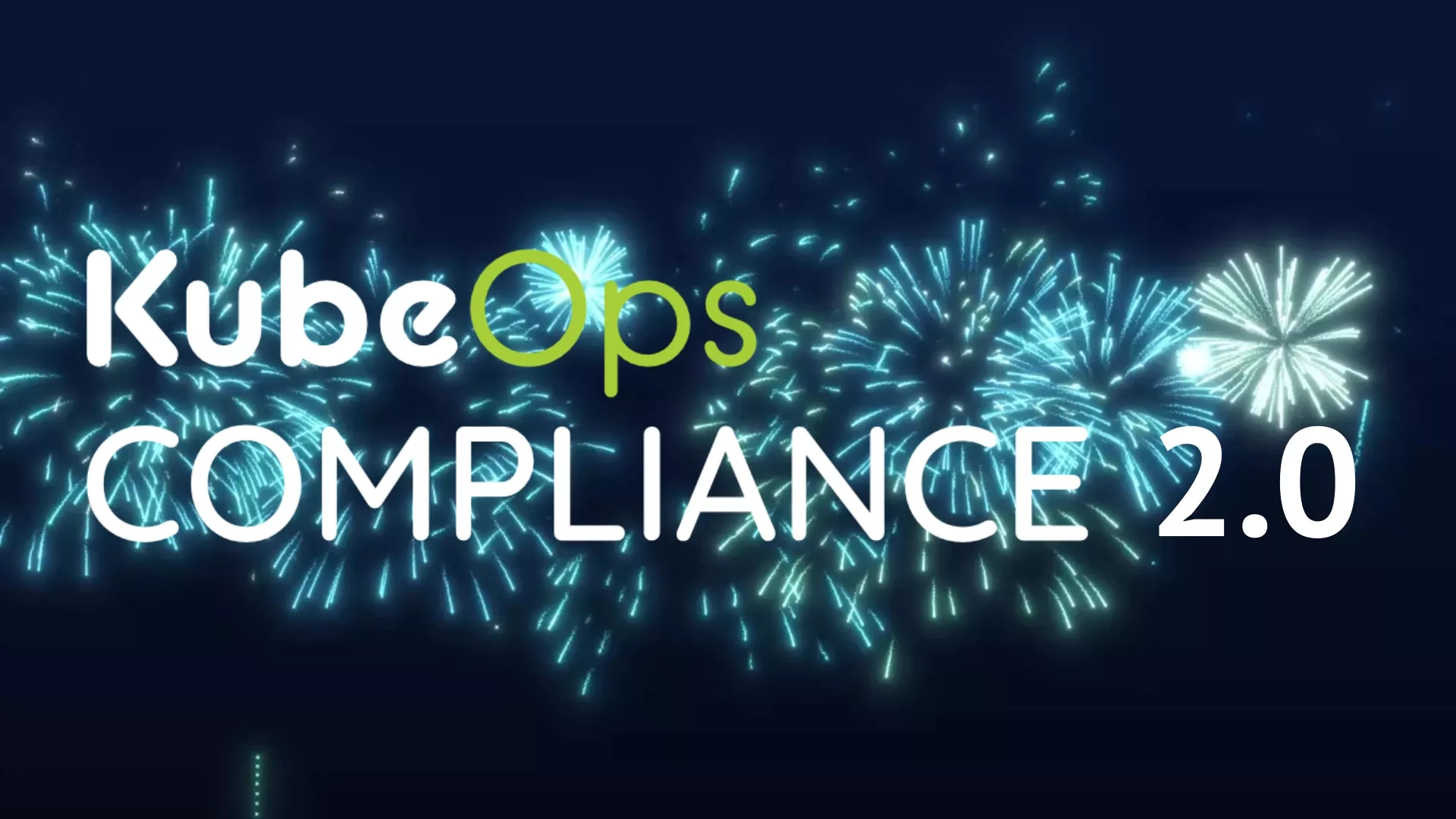Blogs
KubeOps KOSI: The future of Kubernetes orchestration and software installation

Introduction to KOSI - Kubernetes operation and software installation
KubeOps KOSI is a powerful platform for managing Kubernetes applications and packages. With a clear focus on ease of use and flexibility, KOSI enables efficient deployment, update and deletion of software packages in Kubernetes clusters.
Advantages:
- User-friendly operation: KubeOps KOSI provides an easy-to-use CLI for controlling Kubernetes operations.
- Flexible package management: Structured package management via package.kosi and package.yaml for precise Kubernetes orchestration.
- Central access point: KubeOps HUB is a collection of independent Kubernetes packages that are managed via KubeOps KOSI. A central access point simplifies the search and verification of packages.
- Reduced attack surface: By using KubeOps HUB as the single point of access to your cluster, the attack surface can be minimized.
Installation and configuration of KubeOps KOSI
KubeOps KOSI is easily installed using standard package managers. The configuration is controlled by the config.yaml file, which contains all the necessary network and logging settings.
Advantages:
- Fast installation: Simple installation via package manager for fast commissioning.
- Configurable network settings: The config.yaml configuration file allows customization of network and logging settings.
Using KubeOps KOSI for Kubernetes operations
KubeOps KOSI enables precise Kubernetes operations with flags and parameters that allow fine-grained control of deployments, updates and deletions.
Advantages:
- Fine-grained control: flags and parameters provide precise control of Kubernetes operations.
- Custom configurations: Allows the use of custom configuration files for optimal customization.
Use of encrypted YAML files in KubeOps KOSI
KubeOps KOSI enables the use of encrypted YAML files for additional security in Kubernetes operations.
Advantages:
- Secure configuration: Use of encrypted YAML files with the --cf parameter for increased security.
- Combinable parameters: The --cf parameter can be combined with the --hub parameter and the -f parameter.
Management of Kubernetes namespace and deployment names
KubeOps KOSI enables the targeted management of Kubernetes namespace and deployment names for precise and efficient operations.
Advantages:
- Custom Namespace: The --namespace parameter allows you to select a custom Kubernetes namespace.
- Targeted deletions: The --dname parameter allows targeted deletes by deployment name.
Using the KubeOps KOSI check command
The KubeOps KOSI check command compares local KOSI packages with SHA256 checksums for secure and reliable verification.
Advantages:
- Secure packet validation: The KubeOps KOSI check command enables the comparison of SHA256 checksums for reliable validation.
- Trusted Deployments: Ensure that local KOSI packets match expected checksums.
File formats in KubeOps KOSI - package.kosi, package.yaml, default.yaml
The file formats package.kosi, package.yaml and default.yaml define the structure of KOSI packages and contain important configuration information.
Advantages:
- Structured package definition: package.kosi and package.yaml define package versions and installation tasks.
- User-defined default values: default.yaml enables the definition of default values for configurable files.
Plugin execution in KubeOps KOSI
KubeOps KOSI enables the seamless execution of plugins for custom tasks, providing even greater flexibility in Kubernetes orchestration.
Benefits:
- Dynamic plugin execution: run custom tasks seamlessly with KOSI plugins.
- Advanced customization options: Leverage the power of KOSI plugins for customized Kubernetes operations.
KubeOps KOSI and Helm: Efficient Kubernetes orchestration with plugin execution
KubeOps KOSI provides superior Kubernetes orchestration by introducing plugin execution in conjunction with package management. This unique feature enables seamless execution of custom tasks and enhances the capabilities of traditional Helm orchestration.
Advantages:
- Package-centric orchestration: KOSI's package.kosi and package.yaml provide a structured approach to Kubernetes orchestration.
- Dynamic plugin execution: Execute custom tasks seamlessly with KOSI plugins, extending the functionality of traditional Helm orchestration
Integration of KubeOps KOSI and Helm: Unified approach
KubeOps KOSI integrates seamlessly with Helm, providing a unified approach to Kubernetes orchestration and configuration management. Leverage the strengths of Helm and benefit from the advanced features of KOSI, including dynamic plugin execution for enhanced customization.
Advantages:
- Unified Kubernetes management: combine KubeOps KOSI and Helm for comprehensive Kubernetes orchestration and configuration management.
- Maximum plugin synergy: Leverage the power of KOSI plugins in combination with Helm and benefit from unparalleled customization in Kubernetes operations.
Conclusion: Optimize your Kubernetes operations
KubeOps KOSI stands out as a versatile tool that goes beyond traditional package management. Through precise Kubernetes orchestration, seamless integration with Helm and dynamic plugin execution, KOSI enables you to optimize your Kubernetes operations. Discover the unique advantages over Helm and take your Kubernetes environment to a new level of efficiency.

